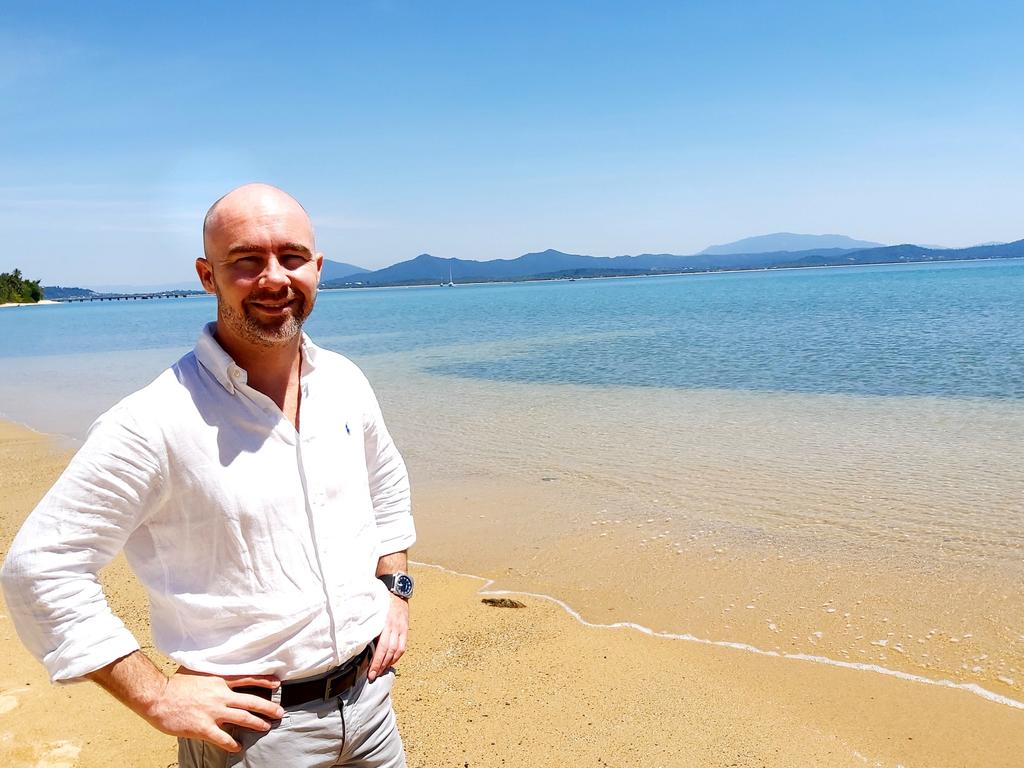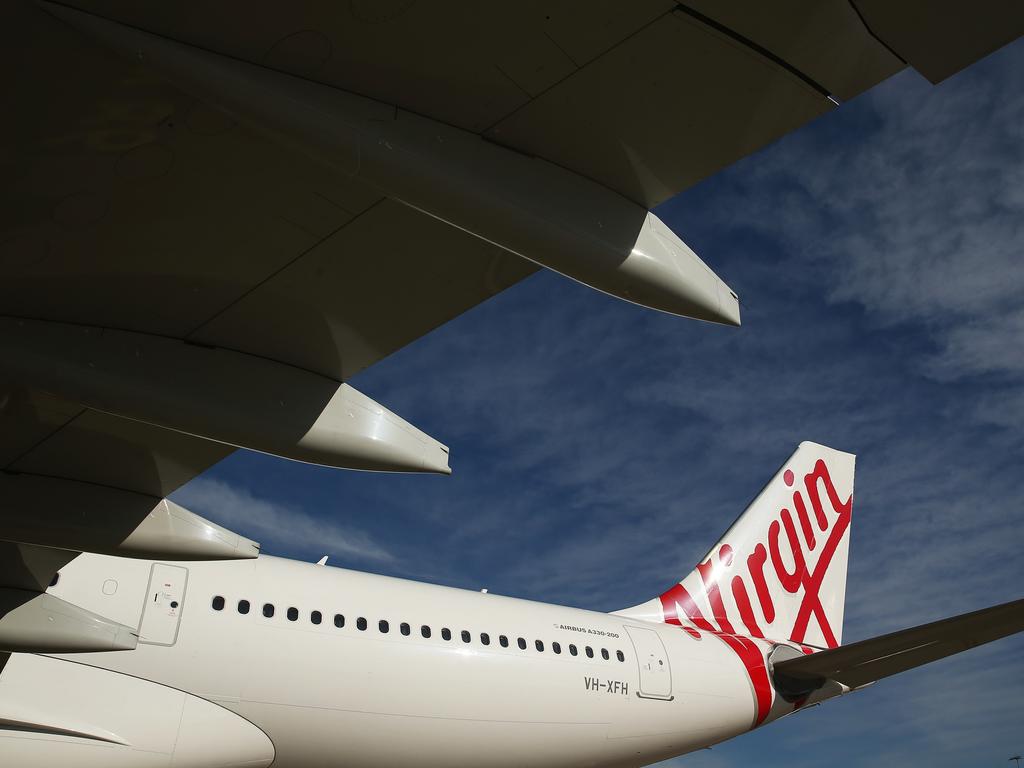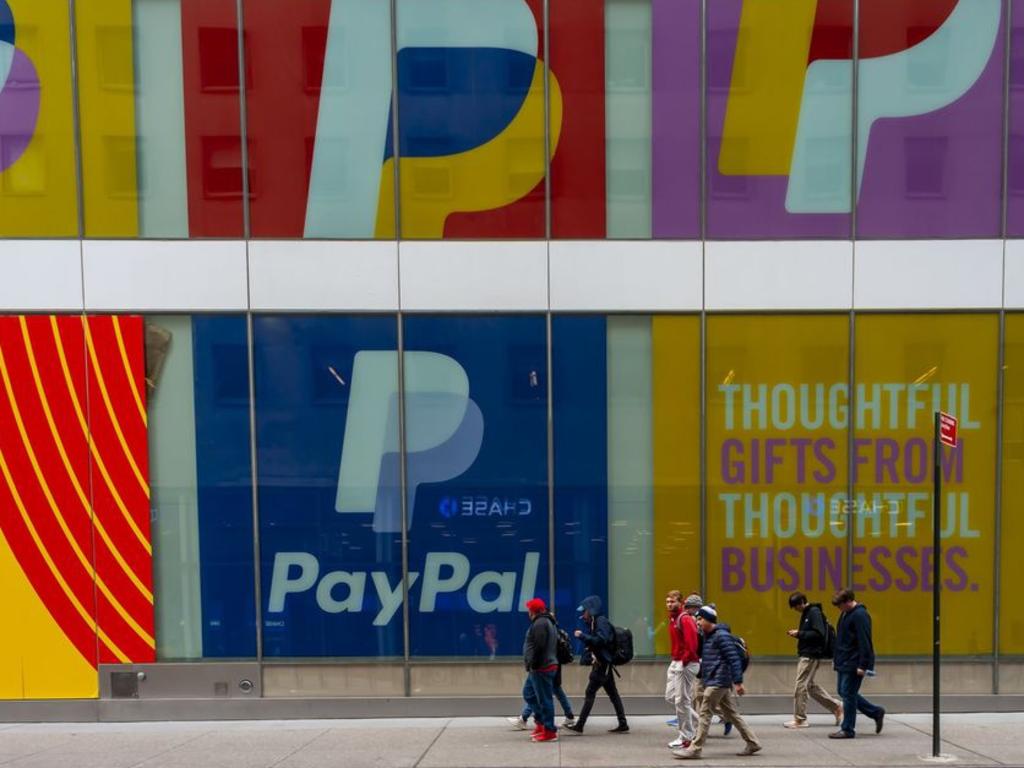A new ball game: Verizon at forefront of 5G switch

Verizon was the first mover in the US on 5G, the highly anticipated fifth generation of wireless networks, and has longstanding relationships in Australia at the government and business level. This is big business.
During an interview with Le Busque for The Alliance on Sky News, 5G and cyber dominated the conversation.
For many Australians, the benefits in the jump from 3G to 4G were immediately apparent and pretty awesome — look no further than the sheer volume of data that brought movies to mobiles.
So what exactly would moving from 4G to 5G deliver? Le Busque points to the American Super Bowl, an event that has become a proving ground for Verizon and an opportunity to showcase new technology. Stadiums are a perfect fishbowl to build out and explore how fans consume entertainment.
“From the way you understand what’s happening on the field with real-time player statistics and video angles streamed to your 5G device, to the way the trainers can understand the telemetry in real time of what the players are doing on the field, to the way a fan might order food or concessions or engage in virtual reality or augmented reality, while I’m sitting there in the stadium, all of these are made possible through the power of 5G technology.”
Le Busque stresses that this is not just another jump in data volumes. “It is about the time it takes that information to travel around, what we call latency, to go from the cell tower to the device and back again, that’s critical to being able to deliver those real-time experiences.”
Verizon is one of the big advertising spenders at the Super Bowl - with more than 100 million people watching in America alone, the cost is more than $US5m ($6.9m) for 30 seconds.
“It’s the greatest sporting event in the world, but you could say something similar about AFL here in Australia,” Le Busque enthuses.
“If you consider the Super Bowl, not just the game itself but the nature of the event, the broad scale of the broadcast and the opportunities that it presents for business and advertising, they’re really significant.”
It is in business and government where Le Busque sees a clear lift in both productivity and user experience from 5G.
“In the US, we already have the Norfolk Naval Shipyards using the augmented and virtual reality capabilities, literally for welders as they sit at the site putting together naval ships. That is powered by 5G technology, a great application in the manufacturing space. Think about healthcare. The pandemic will transform forever the way we think about outpatient care in Australia and the US — 5G technology will be central to changing the way we see our doctors in the future: the way they diagnose our health issues.”
Already, there is the promise of smarter ways to make cities safer and greener and for big changes in how governments interact with the public to deliver services.
Verizon’s ultra-wide 5G network is being rolled out across cities in the US.
“We are still at the beginning of unlocking the power of the technology,” Le Busque says.
Gaming is huge and growing and Verizon clearly believes 5G will be another transformer. During the pandemic, gaming grew exponentially on the Verizon network in both mobile and fixed in the US.
More broadly for consumers it will be the ultra-personalisation of content, how information is viewed and consumed, with ultra-low latency and high data speeds, that will deliver the wow.
Demand will drive adoption, Le Busque argues, just as it did in the shift from 3G to 4G. “Once people understood the technology and experienced the impact it could have, then we saw the growth and usage expand very rapidly.”
In January, just before the pandemic hit, this reporter visited The Ridge, Verizon’s huge private compound in New Jersey, the largest pentagon building after the Pentagon.
Driverless trucks busied themselves in the forecourts while inside, new frontiers of research and strategic plans are being developed. But when looking to grow in Asia, it is Australia’s tech skills and consumer adoption together with our strong cultural affiliation that made it the logical platform for Verizon.
As regional chief, Le Busque is based in Sydney, with an easy accessible manner typical of many Aussie business leaders and rather different from US corporate headquarters.
“Asia is not just one country,” he says, “and having a launch pad or a foundation in Australia where you understand those business norms is a great benefit for US companies looking to accelerate their growth in the region. I’m almost the archetype for it. I’m an Australian leading a US-headquartered company. I’m in the Asia-Pacific region, I spent half of my career living and working in Asia and almost all of it serving Asia-Pacific customers.”
We shift to cyber and here, Le Busque has a warning to go with the laudable tech acceleration by business in response to the pandemic.
“What we have identified is that in the pandemic response, organisations have rapidly moved applications and information into the cloud. That creates a larger attack surface for cyber criminals and so making sure that with any technology investment there is similar investment and understanding of the cybersecurity threat and how you shore up your cyber defences is important.”
Cyber attacks are now ubiquitous. At a national level Le Busque says Australia, a Five Eyes nation (an alliance comprising Australia, Canada, New Zealand, Britain and the US), has a reputation in cybersecurity and cyber awareness. Australia was the first to ban Chinese telco Huawei, which had been aggressively pursuing its own 5G global rollout. The end of Huawei’s Canberra Raiders sponsorship is more than symbolic.
The Five Eyes move to put Chinese technology out in the cold is a change in world order. As Verizon might say, “there’s now a map for that”.
With its huge role in ensuring secure and efficient interconnectivity around the world between today’s fragmented infrastructure, Verizon (whose name stems from truth horizon) is a staunch lobbyer for robust global standards. “As tech becomes more complex and more integrated into other systems within a municipality, within a business, within a country in some cases, no one is an expert on all aspects of the technology and so therefore you need to be very selective about the technology partners that you work with. Often, that selection and that decision is based on a very long relationship of innovation, shared investment and shared technology development.”
For government and business customers, Verizon has one of its nine specialised cyber-detection and response centres based in Australia. From cyber breaches on systems that control city grid traffic monitoring to attacks like ransomware, cyber-activity is increasing.
“And it hasn’t stopped there. It’s moved very definitely to the executive ranks and at board level here in Australia and around the world.” Targeted phishing attacks are on the rise “usually at executive level to compel them to act in a way that would benefit the cyber criminal”.
“The logic there being, why try to spend a lot of effort and energy to break into a very secure IT perimeter when I could perhaps just email an executive masquerading as an employee and have them transfer money directly into my bank account.” 5G and cybersecurity should put every business leader on notice.







Rob Le Busque is a Queenslander who barracks for Hawthorn. He also runs the Asia-Pacific region for Verizon, the US technology, communications and entertainment giant that sits at number 20 on the Forbes 500 list.